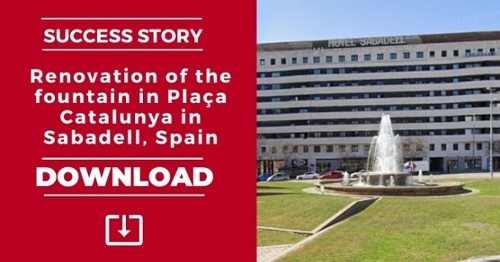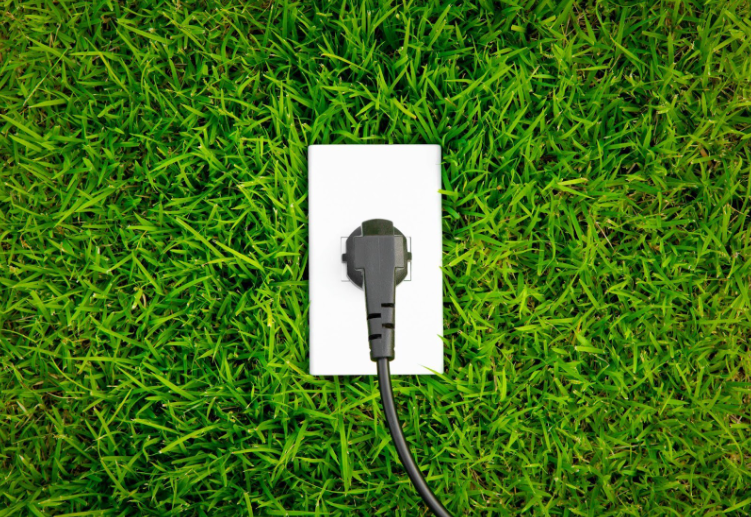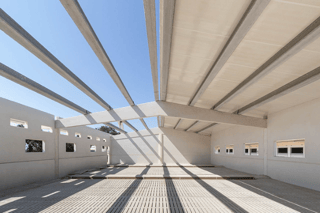Polyurea is one of the best waterproofing solutions for swimming pools. This high-strength elastomer is one of the most effective materials for spaces where the continuous passage of water can cause leaks, such as fountains, water parks and terraces. It is widely used in new buildings but also in repairs, which are carried out quickly and efficiently.Polyurea for swimming pools offers total watertightness and excellent adhesion to the substrate, even if it has irregularities. This ease of adaptation to any material is one of its strong points. The reason is that both pools and fountains can have an infinite number of different shapes and finishes, as well as being on very different surfaces. Polyurea is also UV-resistant.
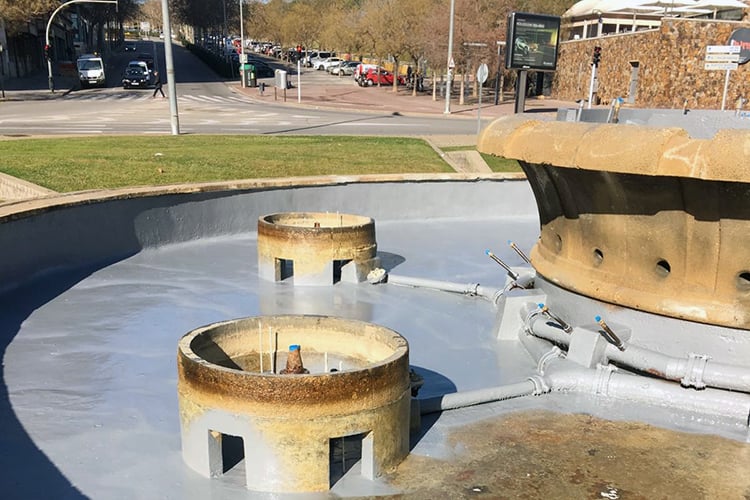
Step by step application of polyurea in swimming pools and fountains
Both in new construction and in renovation, these are the basic steps for waterproofing swimming pools and fountains with polyurea:
- It is necessary to begin with the treatment of the substrate, which as mentioned above can be of any type: concrete, acrylic paints, ceramics, old waterproofing materials, etc. It is always necessary to prepare the surface on which the polyurea will be applied, either in case of repair or in new construction. In addition, this must be completely clean and free of moisture, to prevent the appearance of bubbles.
- Despite its excellent adhesion capacity, it is advisable to use primers. If the surface is extremely smooth, sandblasting is recommended.
- Once this is done, the polyurea is sprayed hot, which will form a continuous membrane that will cover the entire pool or fountain, achieving total watertightness which drys in a matter of seconds. It is recommended to apply it in thin layers, allowing them to dry between one and another, and to do it in a crossed way, once in each direction.
- It is time to add the bonding layer to install the coating. A specific material must be used, such as a final layer resistant to UV rays (the so-called aliphatic), chlorine and salt water.
If applied cold, no special equipment is required as the material is spread with a roller. To apply to vertical walls hot spraying is more practical, which also dries faster, and only requires high pressure equipment.
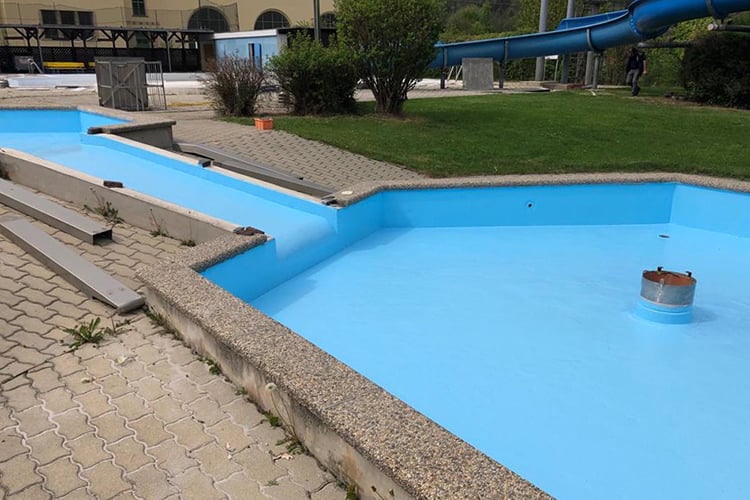
What are the advantages of polyurea for swimming pools?
One of the best reasons to choose polyurea waterproofing is that it can be applied on almost any surface and material, without joints or overlaps. In addition, it is quick drying, so the job is completed in a few hours.
In addition to mechanical and chemical resistance, elasticity and thermal stability, polyurea has a long service life of up to 25 years. On the other hand, with a correct application, there is complete guarantee of watertightness.
Polyurea for swimming pools is a highly recommended choice both to solve filtrations and for new work, all without losing sight of sustainability.

